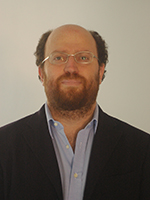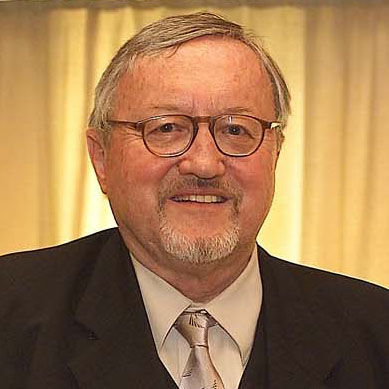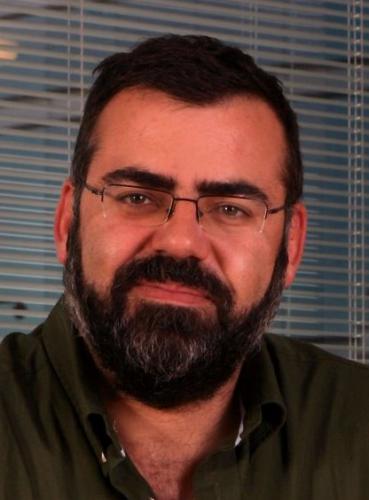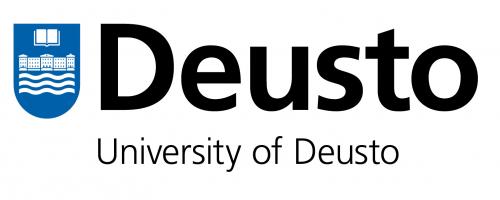Invited Talks
Monday, August 30th, 09:30
Divyakant Agrawal, University of California at Santa Barbara & National University of Singapore
Title:
"Data Analytics in the Cloud: A Oasis or just a Mirage?"
ABSTRACT.
Cloud computing has emerged as a new paradigm for scalable,fault-tolerant, elastic, and self-manageable computing over large data-centers. In the commercial arena, large Internet and Web service and application providers have demonstrated the effectiveness of cloud computing to analyze and process petabytes of Web data. As other entities migrate their respective Information Technology infrastructures to the cloud, a natural question arises if the relatively simple model of distributed and parallel data processing and analysis based on the MapReduce paradigm will be able to cope with
the complex analysis that is warranted in the context of data warehousing, business intelligence, and scientific data analysis.
With this backdrop, we start by motivating the accelerating need for scalable analytics over vast amounts of data of different types for diverse applications in variety of domains. We then review the state-of-the-art of data analytics in the cloud and summarize the current state of a heated debate that has emerged where it is being argued that MapReduce is a step in the wrong direction for data analytics. We then provide our perspective on this debate and
stipulate some of the enhancements that can be made to the MapReduce paradigm to enable online analytical processing over massive amounts of data in the cloud. We conclude this talk with some remarks about the future trends in the context of data analytics as well as the future vision of an integrated data management and data analytics architecture in the cloud settings.
SPEAKER BIOGRAPHY.
Dr. Divyakant Agrawal is a Professor of Computer Science at the University of California at Santa Barbara. His research expertise is in the areas of database systems, distributed computing, data warehousing, and large-scale information systems. From January 2006 through December 2007, Dr. Agrawal served as VP of Data Solutions and Advertising Systems at the Internet Search Company ASK.com. While at ASK.com, Dr. Agrawal was the Chief Architect for building the next-generation Business Intelligence and Data Warehousing system. In addition, he developed revenue-sensitive products at ASK.com by applying data-mining and machine-learning technologies over ASK.com’s historical data.
Dr. Agrawal also served as a Visiting Senior Research Scientist at the NEC Laboratories of America in Cupertino, CA from
1997 to 2009. He is currently a Visiting Professor at the School of Computing at the National University of Singapore (Summer'2010).
During his professional career, Dr. Agrawal has served extensively on the Program Committees of International Conferences, Symposia, and Workshops and served as an editor of the journal of Distributed and Parallel Databases (1993-2008), the VLDB journal (2003-2008) and currently serves on the editorial board of the Proceedings of the
VLDB. He recently served as the Program Chair of the 2010 ACM International Conference on Management of Data and is currently serving as the General Chair of the 2010 ACM SIGSPATIAL Conference on Advances in Geographical Information Systems. Dr. Agrawal's research philosophy is to work on data management problem that have both practical as well as theoretical impact. He has published approximately 300 research manuscripts in prestigious forums (journals, conferences, symposia, and workshops) on wide range of topics related to data management and distributed systems.
 |
Monday, August 30th, 12:35
Fabio Martinelli, CNR, Italy |
We present a framework for usage control in GRID services. Usage control is suitable for managing continuously the usage of GRID resources, depending on several factors. Our prototype allows both coarse grain control at service level as well as fine grain control on local resources. Usage control naturally is interrelated to the notions of risk and trust. We show how these notions can be naturally embedded in the usage control framework for GRID services.
Short-Bio
Fabio Martinelli is a senior researcher of IIT-CNR where he leads the information security group. He is a co-author of more than one hundred of papers on international journals and conference/workshop proceedings. His main research interests involve security and privacy in distributed and mobile systems and foundations of security and trust. He serves as PC-chair/organizer in several international conferences/workshops and Ph.D. schools. He founded and chaired (2005-2009) the WG on security and trust management (STM) of the ERCIM consortium and He is also member of the IFIP WG on trust management. He usually manages R&D projects on information and communication security and he is/has been involved with several roles in the following FP6-FP7 projects: ARTIST2, BIONETS, CONNECT, CONSEQUENCE, GRIDtrust, S3MS, SENSORIA.
 |
Tuesday, August 31st, 12:35
Roland Traunmüller, Johannes Kepler University of Linz, Austria |
Competition is growing among countries, companies and institutions. Feeling the pressure from competition innovation is regarded as panacea. Also for Government innovation has become essential. It gives the State the ability for coping with societal needs posed in economics, welfare, health, education, environment etc. Thus, Government has to be open for innovating Government and citizens play a growing role in such innovation processes. Now, with Web 2.0 the adequate tools and methods for that role have become available.
So, under such names as Web 2.0 and social media, a new wave of web-based applications has emerged. These applications rely on the concept of the user as a producer and provide a way to improve Public Governance. With a social web new ideas are diffusing much more rapidly. An early recognition of the new role of the user came from Time Magazine (25 Dec 2006). In that issue it made “The User the Person of the Year”. Therefore the front-page of that edition had a reflecting foil mirroring the spectator.
Web 2.0 is a great means to favour involvement of staff and citizens to create a better Government. Regarding the side of Public Administrations, social media enable to get response. Citizens may suggest improvement so providing feedback to agencies and makes administration more accessible. Within agencies staff persons use the Web 2.0 for cross-agency collaboration, good practice exchange and knowledge management. Another field is lawmaking – an effort involving politicians, administrations, citizens and experts. Connecting stakeholders will make law-making more effectively. Empowered through ICT law making may become more transparent, accessible and accountable.
Concerning the citizens’ side, social media are great to improve all kind of civic society activities. The perceived democratic deficit requires new relationships between state and citizens. Public responsiveness should be improved, one wants to reconnect citizens with politics and policy making. Also knowledge and expertise of citizens should be tapped in a well. Concrete applications are manifold including the following ones: political participation, advising of other citizens, assisting monitoring and law enforcement, providing service ratings. Several projects aim at involving citizens in urban planning. This may target even quite detailed questions such as allocating budgets for recreation facilities etc.
About the Speaker:
Roland Traunmüller is Professor Emeritus with the Institute for Informatics in Business and Government at Linz University, Austria. Prof. Traunmüller has worked in the field of Information Systems and applications of information technology in Government for three decades. In Austria Prof. Traunmüller heads the Forum e-Government, in Germany he is member of the steering body e-Government within the German Computer Society. Within DEXA Prof. Traunmüller founded in 2002 the EGOV conference series as annual meeting of the European R&D Community.
In addition he has been involved in various consulting activities and boards on the national and international level (Ministries, EU, UNO, and UNESCO). In recognition of his work official acknowledgements have come in. In recognition of his work official acknowledgements have come in. So for founding the e-Government R&D Community he got 2006 the “Prometheus” – an Award dedicated by the North-American Society on Digital Government and by the European Community for e-Government. He also got the Roland Wagner Award – an international award on computers helping people with special need. Lately the Republic of Austria honoured the Life-work of Prof. Traunmüller with awarding to him the Big Silber Medal of the Republic Austria.
 |
Wednesday, September 1st, 12:35
Oscar Pastor, Universidad Politécnica de Valencia, Spain |
ABSTRACT
The genotype-phenotype linkage is one of the main challenges that modern Bioinformatics faces. Understanding how this linkage is accomplished would allow to answer fascinating questions as where do we -human beings- come from, and why do we behave as we do. Genes in the DNA, code for proteins whose structure accounts for function and produces the final phenotype, the role of the environment... They all conform an extremely interesting domain, that could be modeled from an Information System perspective. This set of questions are looking for more and more precise answers, that could be provided if the well-known, sound concepts of conceptual modeling were properly applied. That Information Systems perspective can provide new insights to this problem, through the specification of precise Conceptual Schemas that could be seen as the model at the Problem Space, whose representation at the Solution Space is just the Human Genome, the final objective being interpreting and understanding the semantics that are behind how the Human Genome works. The keynote will address these ideas, and will analyze how a Conceptual Schema can be constructed, to characterize and armonize the tons of data that are currently available, too often with redundancies, inconsistencies and other data quality problems that prevent them from being properly exploited.
Short Bio:
Oscar Pastor is professor and director of the Centro de Investigación en Métodos de Producción de Software (PROS) at the Universidad Politécnica de Valencia (Spain). He received his Ph.D. in 1992. He was a researcher at HP Labs, Bristol, UK. He has published more than two hundred research papers in conference proceedings, journals and books, received numerous research grants from public institutions and private industry, and been keynote speaker at several conferences and workshops. His research activities focus on web engineering, object-oriented conceptual modeling, requirements engineering, information systems, and model-based software production. He created the object-oriented, formal specification language OASIS and the corresponding software production method OO-METHOD. He led the research and development underlying CARE Technologies that was formed in 1996 by the Universidad Politécnica de Valencia and Consoft S.A. CARE Technologies has created an advanced MDA-based Conceptual Model Compiler called OlivaNova, a tool that produces a final software product starting from a conceptual schema that represents system requirements. He is currently leading a multidisciplinary project linking Information Systems and Bioinformatics notions, oriented to designing and implementing tools for Conceptual Modeling-based interpretation of the Human Genome information.
 |
Thursday, September 2nd, 12:35
Ricardo Baeza-Yates, Yahoo! Research |
We will outline the science and the technology behind web advertising. We will first review the various forms of web advertising served up by advertising networks such as Google, MSN and Yahoo!. We will then introduce the technical challenges and solutions for such problems as: given a users search query, how do we determine which advertisement(s) to present? Of all the advertisers who wish to present their ads on a particular query, who should succeed? The
solutions to these problems span fields from text mining and retrieval, to the theory of auctions and marketplaces. We conclude by discussing some of the ethical, legal and privacy challenges around the responsible use of data for web advertising.
Short bio:
Ricardo Baeza-Yates is VP of Yahoo! Research for Europe, Middle East and Latin America, leading the labs at Barcelona, Spain and Santiago, Chile. Until 2005 he was the director of the Center for Web Research at the Department of Computer Science of the Engineering School of the University of Chile; and ICREA Professor at the Dept. of ICT of Univ. Pompeu Fabra in Barcelona, Catalonia, Spain. He is co-author of the book Modern Information Retrieval, published in 1999 by Addison-Wesley, as well as co-author of the 2nd edition of the Handbook of Algorithms and Data Structures, Addison-Wesley, 1991; and co-editor of Information Retrieval: Algorithms and Data Structures, Prentice-Hall, 1992, among more than 150 other publications. He has received the Organization of American States award for young researchers in exact sciences (1993) and with two Brazilian colleagues obtained the COMPAQ prize for the best CS Brazilian research article (1997). In 2003 he was the first computer scientist to be elected to the Chilean Academy of Sciences. During 2007 he was awarded the Graham Medal for innovation in computing, given by the University of Waterloo to distinguished ex-alumni. In 2009 he was awarded the Latin American distinction for contributions to CS in the region and was promoted to ACM Fellow.
|
Thursday, September 2nd, 15:00
Fernando Lopes, National Research Institute (LNEG), Lisbon, Portugal |
ABSTRACT:
Traditional negotiation, conducted face-to-face and via mail or telephone, is often difficult to manage, prone to misunderstanding, and time consuming. Automated negotiation promises a higher level of process efficiency, and more importantly, a faster emergence and a higher quality of agreements. The potential monetary impact has led to an increasing demand for systems composed of software agents representing individuals or organizations and capable of reaching efficient agreements (e.g., the business trend toward virtual enterprises, or the pivotal role that electronic commerce is increasingly assuming in many organizations).
In this talk, we will outline the science and technology behind automated negotiation. Firstly, we will introduce a generic framework for automated negotiation. Next, we will assess the sophistication of the majority of work in the literature according to the different components of the framework. We then describe some important automated negotiation systems. Finally, we will highlight some of the major challenges for future automated negotiation research.
SHORT BIO:
Fernando Lopes received the M.Sc. degree in Computer Science and the Ph.D. degree in Artificial Intelligence from the Technical University of Lisbon (IST), Lisbon,Portugal. He was a Postdoctoral Researcher in the Department of Computer Science at the University of Liverpool, UK, where he carried out basic research in agent-based computing, notably agent-mediated negotiation.
Currently, Fernando Lopes is a researcher at the National Research Institute (LNEG),Lisbon, Portugal. His research interests include negotiation in multi-agent systems, software engineering aspects of autonomous agents, and applications of agent-based computer systems. The research work is interdisciplinary in nature and involves methods and techniques from artificial intelligence, game-theory, and some fields of the social sciences (e.g., international relations and social psychology).
Fernando Lopes has published over thirty refereed articles in journals and conference proceedings. He is an editorial board member of the International Journal of Artificial Intelligence (CESER Publications) and a programme committee member of the International Conference of the British Computer Society's Specialist Group on Artificial Intelligence. He also acts as a reviewer for the European Journal of Operational Research (Elsevier Science).
Friday, September 3rd, 11:30
Tommaso di Noia and Azzurra Ragone, Politechnic of Bari, Italy
Title:
"Electronic Markets, a look behind the curtains: how can semantic matchmaking and negotiation boost e-commerce?"
We will present different semantic-based approaches to matchmaking and negotiation in electronic markets, showing how semantics can lead to a new generation of Electronic Commerce systems.
We will review different solutions to solve the two problems in the context of search/retrieval, multiattribute auctions, advertising, just to cite a few, showing the added-value provided by these techniques in so lively environments.
The presentation will range from strictly semantic-based approaches, to those combining logic languages with utility theory, to most recent ones relying on Semantic Web technologies.
We will finally show some prototypes that allow users to interact with these systems through a very simple and intuitive user-friendly interface, hiding the underlying technicalities.






